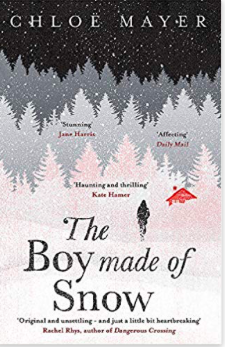Book groups have never really agreed with me as I’m obsessed by mainly reading slow-burning, suspenseful novels. Think The Push by Ashley Audrain; Magpie Lane by Lucy Atkins. Ask me to stray away from that kind of story and I can get a little tetchy — at least I used to.
Nine months ago, the fantastic charity that is Crossroads Care Richmond and Kingston upon Thames – which I have been volunteering for from the beginning of the first Covid lockdown until now – asked myself and Melinda McHugh, their Media and Communications Officer, to set up a book club for the unpaid Carers that they support in the community. We agreed.
I have to confess, I’ve been in book groups before and have never been very committed to them — I was too busy reading books of my own choosing. The one good thing about any of the book groups I had been a part of in the past though was that they had been food for thought for characters in my novels.
But this book group — the Carers Book Group — has turned out to be different to the book groups I have attended in the past. It’s there to bring like-minded people together, develop friendships and importantly give Carers a much-needed break. We started small – just four of us — and due to lockdown, our meetings took place over Zoom at first. We laughed, we discussed, we spoke over one another sometimes, such as Zoom is, but nobody dominated.
And then finally, we met in person. We got together in the charity’s office in Teddington after hours where a Crossroads therapist gave us head massages while we put the fiction world to rights. What a relief it was to be in a room with people.
Next came a pub meet-up with a new member. We talked feel-good fiction. We talked Matt Haig. We like Matt Haig. We decided we very much like ‘dippable’ fiction – the type of stories that you can simply read a few pages of, then put down without feeling as if you’ve lost the plot.
And so we have carried on, our number increasing a little bit more, but still we are a small unit. Quite often we read books that tend to veer away from what I might ordinarily read, but instead of feeling tetchy, I feel inspired. I am reading more widely than I used to and often I have two books on the go at the same time.
I like watching our group of quietly invincible Carers taking time out and talking books. I like that friendships are building. I like listening to the chat and the laughs. I am not collecting personalities for anything I might write in the future (I promise), I’m just, for the first time in my life, enjoying being part of a book group.
So thank you, ladies of the Crossroads Care Richmond and Kingston Carers Book Group. What fun it is to be one of your number.







